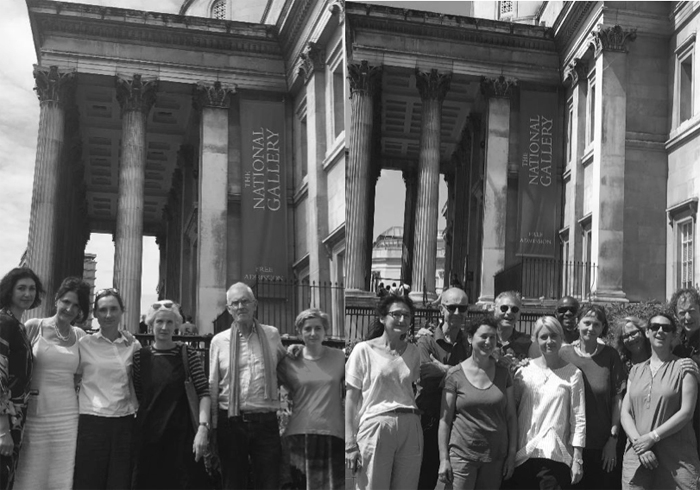A group of 27 artists and art educators who have claimed that the National Gallery unlawfully dismissed them are taking their case to the employment tribunal. Working regularly at the gallery for several decades, from between 10 years to over 40 years of service, the artists and lecturers delivered a daily programme of films, talks, courses and workshops which has helped to improve public engagement and enthusiasm for the London gallery.
In this latest case over the ethics of the gig economy (which has included disputes between workers and employers of Uber, Deliveroo, Pimlico Plumbers and Hermes), the group is seeking to be recognised as ‘employees (and at a minimum ‘workers’), and not self-employed’. In addition to the case brought against their unfair dismissal, the group also claims that the National Gallery has discriminated against specific members of the group, in respect to longevity of service, sex and age. Their lawyers will argue that they had a right to a full consultation and should be given retrospective holiday pay.
Although the gallery insisted they were freelancers, the artists and educators have said they were paid via a taxed PAYE system, had official staff badges, attended regular appraisals, worked in offices and had access to the staff canteen. Despite these formalities, the claimants were given ‘no job security or employment rights, including holiday pay and sick pay.’
In a statement to The Guardian, the National Gallery has said: ‘It is our understanding that the claims have arisen out of the Gallery’s wish to change from offering ad hoc work to offering more secure employment, with additional pension and worker benefits. This change reflects the Gallery’s strategy to develop our programmes to increasingly reach new audiences and make the most of digital technology to widen our engagement.’
However, the group of 27 artists and educators argue that: ‘The Gallery has replaced our large group of long-serving educators with a small number of in-house educator roles on greatly reduced salary and terms, to which we do not consent.’
In a statement released by the group, James Heard, the longest-serving claimant who worked for the National Gallery for 45 years has said: ‘We are standing up for fair treatment for staff in the arts, and to protect the teaching expertise at the heart of our museums. Our national galleries are something the UK is extremely proud of and it is vital that the educators who hold the collective knowledge of these places are properly protected.’
The group have launched a crowdfunding campaign, Help National Gallery Educators seek justice at Employment Tribunal, to raise money for the legal costs of continuing to fight the case.
18 July 2018
